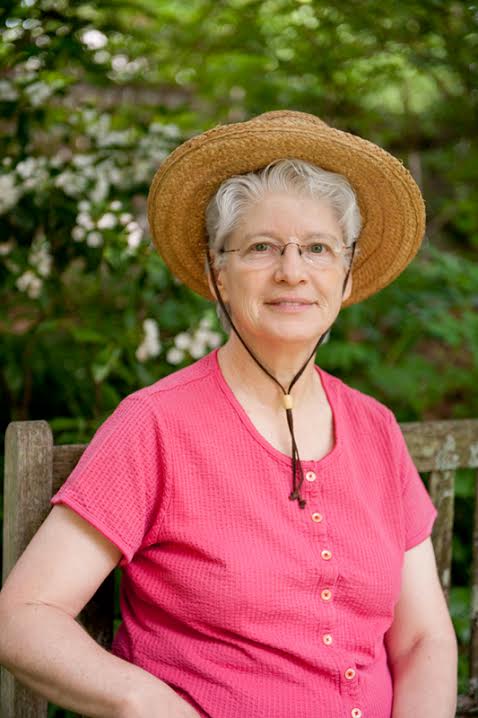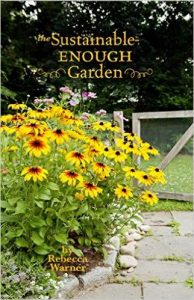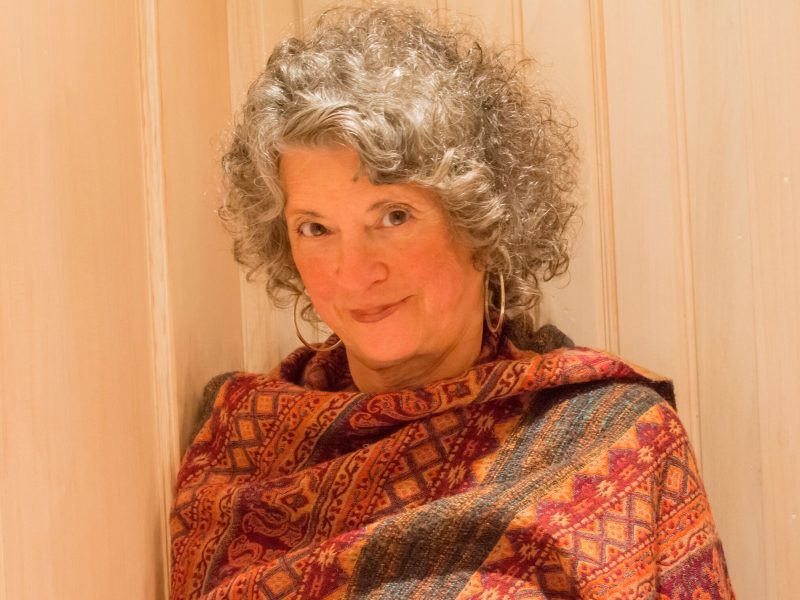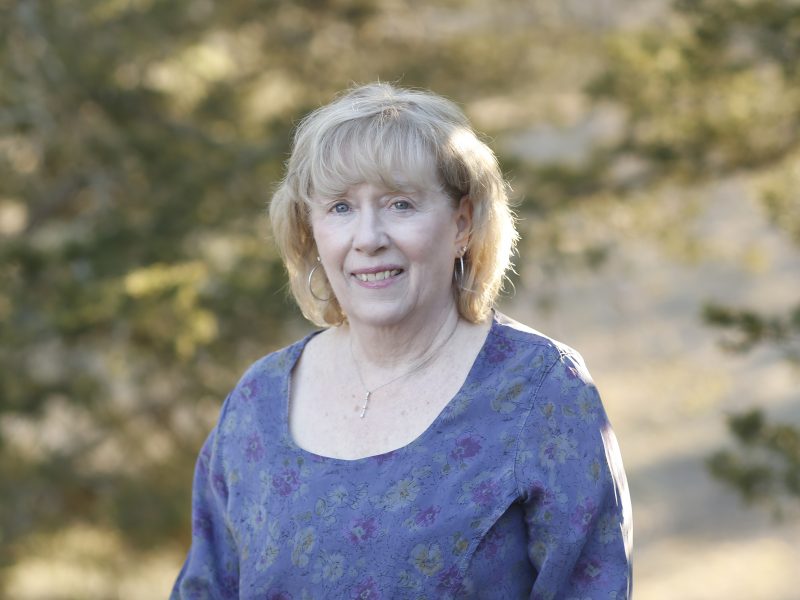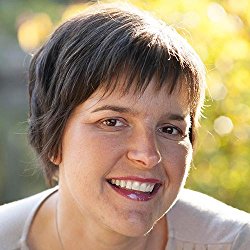Rebecca Warner is a home gardener in Newton, Massachusetts with thirty years’ experience working toward a sustainable ornamental garden. When she’s not gardening, she’s a geriatric psychiatrist. Her book The Sustainable-Enough Garden is the story of her quest to make a beautiful garden that’s environmentally friendly. In the last five years she has overhauled her garden practices, from composting to mulching, lawn care to irrigation.
Tell me a little bit about who you are and where you live.
I’ve been gardening in the same third-of-an-acre yard in Newton, Massachusetts for 30 years. I’m a weekend amateur gardener on the road to gardening sustainably—that means imitating natural processes, minimizing waste and energy use, and emphasizing cycling of materials. I got my start with a compost pile that was a total flop. Over the years I’ve figured out what works in my garden, including how to make decent compost. I’m learning how to be a good citizen in the community of plants, animals, insects, and soil organisms that makes up my garden. Like most gardeners who aren’t professionals, I have limited time and energy for gardening, so I have to make choices and set priorities. I see getting to sustainability as a process. I’m not there yet, but I’m working toward that goal.
Tell us about your profession and how it led to your latest work.
I’m a geriatric psychiatrist at Cambridge Health Alliance. At work I have the privilege of making home visits to elders who need mental health care and can’t get out for office visits. I guess my work led me to want to write about something completely different. I had read lots of how-to gardening books, but some of my favorite books were the ones in which a gardener I could identify with told how she made her garden. That’s what I aimed for.
Are there any favorite local spots you like to visit, ones that inspire your creativity?
Two inspiring local spots are the Arnold Arboretum in Boston and Garden in the Woods, which is maintained by the New England Wild Flower Society in Framingham, Massachusetts. Both are beautiful and also full of useful information about which plants are likely to grow best in my garden.
Wow us with shock value. Is there anything about you that would surprise readers?
When I took an aptitude test in junior high (the Kuder Interest Survey), I was advised to become a forest ranger or a telephone linesman. I guess the test picked up that I liked to be outdoors, but it missed my fear of heights.
If you could spend a day with any author, living or dead – who would it be and why?
The author I’d like to spend a day with is Thalassa Cruso, who hosted the public TV show Making Things Grow from 1966 to 1969. I love her garden writing, especially Making Things Grow Outdoors (1971). Hers was the ideal I aimed for when I wrote my book. She’s incredibly knowledgeable but also witty and down-to-earth, and she gardened near my home. I’d love to know what she’d say about today’s view of what defines a sustainable garden. Would she get on board with the movement for native plants? Unfortunately she died in 1997 at age 88.
Does the area in which you live provide influence in your writing? How so?
The best gardens have to have a sense of place. I try to make a garden that’s true to the New England landscape but also reflects what I find beautiful. When I wrote my book, I realized that what works for me won’t work in many other areas of the country. For example, until this year, Massachusetts gardeners didn’t have to worry about having water for irrigation. On the other hand, we never had deep prairie soil. I enjoy getting to know my land over the years, and I’d like to inspire everyone to do the same. You don’t need huge acreage to experience nature.
What is the most critical piece of advice you would give to new authors?
My most critical piece of advice to new authors is to get an editor. When I finished my first draft, I imagined the book was almost finished. It’s embarrassing to remember how far that was from the truth. Another reader is essential, and it’s best if it’s someone who’s a good teacher and organizer as well as an honest critic. My book would never have come to be without my editor, Lorraine Anderson.
Are there more books coming from you in the future? Do tell!
I’m interested in writing about the history of the community mental health movement.
Where can people find more information on you and your projects?
Check out my weekly blog at http://thesustainable-enoughgarden.blogspot.com/
